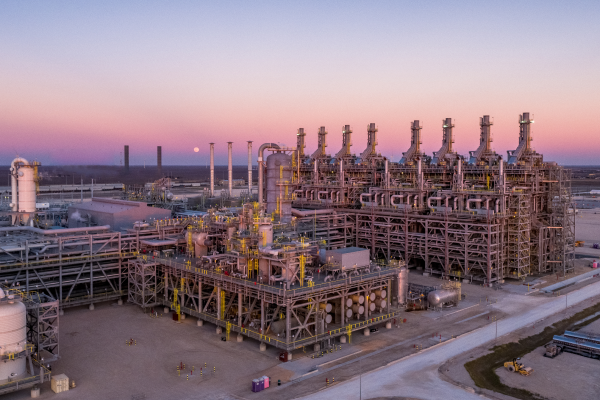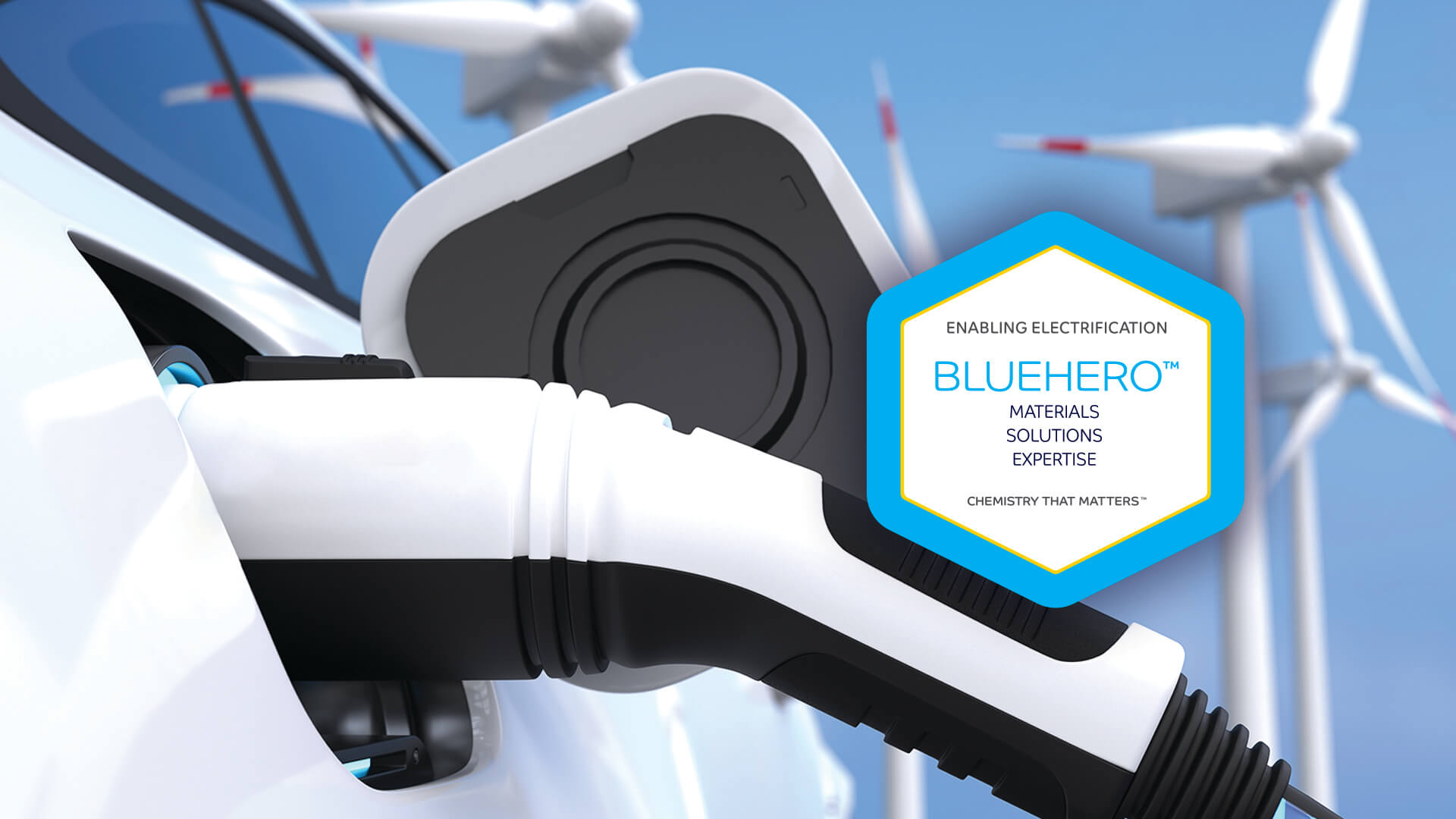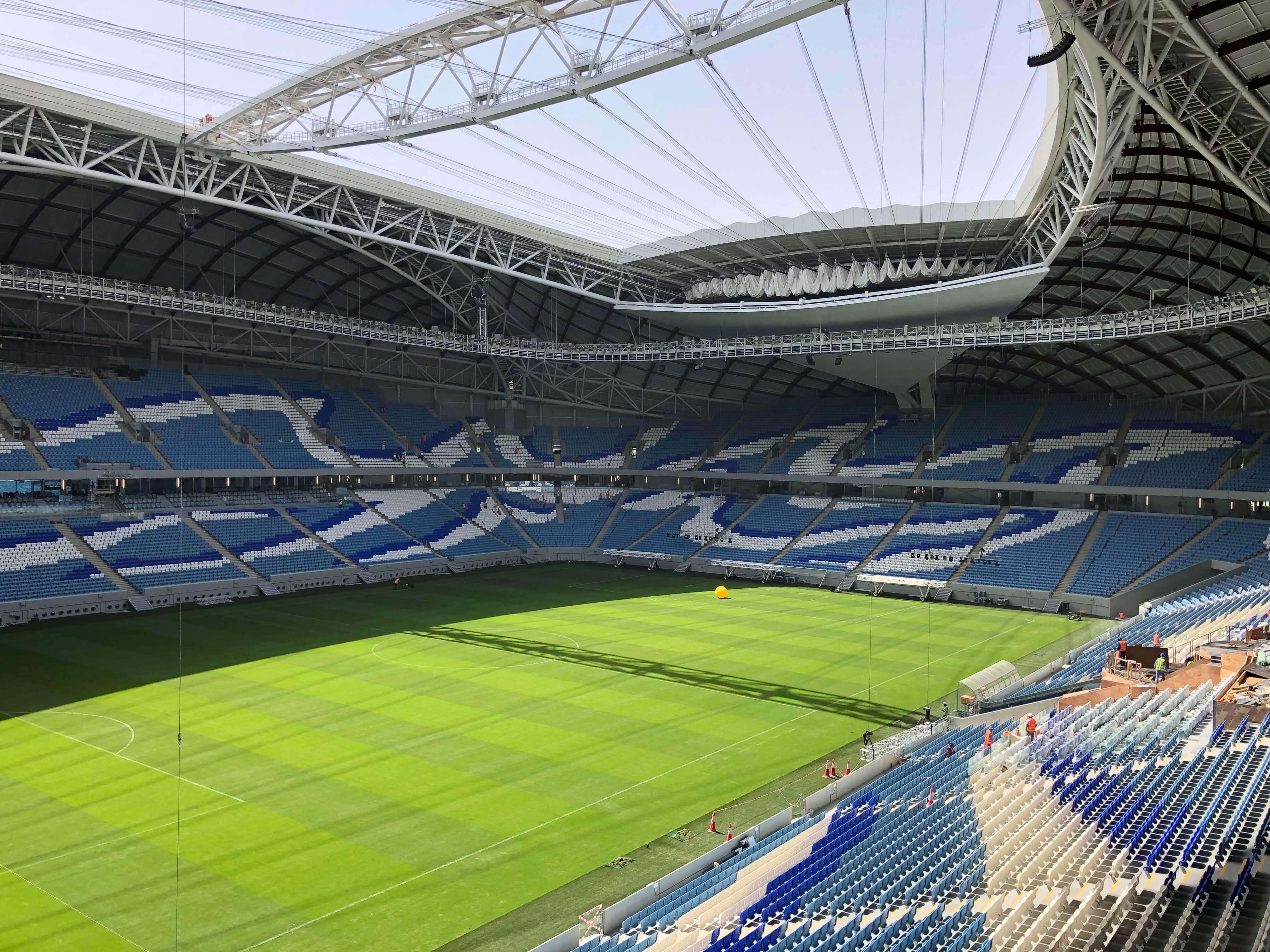PETROCHEMICALS
Petrochemicals is SABIC’s largest Strategic Business Unit, supplying its global customers with innovative solutions.
GLOBAL MARKETS
2022 has been one of contrasting two halves. The first half was a period of growth for the petrochemicals industry, while the second half witnessed a slowdown due to decreasing customer confidence due to anticipated economic contractions and external factors beyond our control.
For many petrochemical companies, capacity grew in lockstep with expansion rates seen in previous years. However, this overcapacity also squeezed operating rates and petrochemical margins in the process. In the first half of 2022, ongoing supply chain disruptions and high container rates caused high price differences between key regions. Although container freight rates reduced in the second half of the year, they still stand higher than pre-pandemic levels. The freight cost for liquid chemical products increased and the industry was forced to curtail production in the second half as demand slowed due to lower GDP growth rates and fears of recession.
Outside of the beginning of the year, COVID-19 had limited impact in major parts of the world, with the sole exception of China. Several lockdowns in Shanghai in early second quarter, coupled with the government’s strict zero-COVID policy at that time, had a strong negative impact on Chinese GDP growth rate and petrochemical demand.
The Ukraine conflict has escalated prices of crude oil and natural gas. Spot prices for natural gas were high in both Europe and Asia; European producers, who often rely on spot markets for gas, were particularly affected. The industry saw wide curtailments, especially for gas-intensive processes like methanol and ammonia. Naphtha prices remained relatively low given that fuel demand for gasoline and diesel was much stronger than naphtha demand.
2022 also highlighted growing concerns for lower demand in petrochemicals in key regions due to high inflation in the western part of the world, reducing customer affordability. At the same time, many companies have announced greenhouse-gas-reduction targets that fall in line with governmental targets as sustainability and the challenge of climate change has risen to the top of the industry’s agenda.
Financial highlights
Petrochemicals and Specialties revenues increased from SAR 149.9 billion in 2021 to SAR 164.8 billion in 2022, an increase of SAR 14.97 billion or 10%, driven by an increase in sales volumes by 7% and increase in average sales prices by 3%.
Production volume
| KMT |
|
2022 | 2021 |
|---|---|---|---|
| Chemicals | 37.7 | 35.75 | |
| Polyethylene (PE) | 4.6 | 4.0 | |
| Performance Polymers and Industrial Solutions (PP and IS) | 5.7 | 6.1 | |
| Total | 47.9 | 45.9 |
Sales volume
| KMT |
|
2022 | 2021 |
|---|---|---|---|
| Chemicals | 23.4 | 23.0 | |
| Polyethylene (PE) | 8.7 | 7.1 | |
| Performance Polymers and Industrial Solutions (PP and IS) | 7.5 | 6.8 | |
| Total | 39.7 | 36.9 |

The Gulf Coast Growth Ventures facility in San Patricio County, Texas.
OPERATING HIGHLIGHTS
EXPANSIONS
– SABIC’s joint venture with ExxonMobil, Gulf Coast Growth Ventures, began operations at its world-scale manufacturing facility in San Patricio County, Texas, in January 2022. A proven 100% plant design capacity with all performance tests were completed safely and successfully in the second half of the year.
– SABIC SK Nexlene Company will expand the capacity of its Ulsan plant in South Korea to use its Nexlene™ technology for the production of advanced material solutions in its joint venture with SK Geo Centric. The plant will support the production of SABIC’s broad portfolio of COHERE™ metallocene polyolefin plastomers (POP), SUPEER™ metallocene linear low density polyethylenes (mLLDPE) and FORTIFY™ polyolefin elastomers (POE).
– In October, SABIC started commercial operations at United’s third EG plant, marking a milestone achievement in our EG growth ambitions. The annual production capacity at the plant is 700,000 metric tons of monoethylene glycol (MEG).
– Another SABIC affiliate, Gas, expanded its industrial gas production capacity by adding a new Air Separation Unit Phase-9 to fulfill current and future demands of N2 and O2 in the Jubail industrial city. This is a strategic growth project as part of the continuation of its journey toward being the most preferred industrial gas supplier.
– Two MTBE improvement projects have been awarded in Petrokemya North (PK-N) and Ibn Zahr. These improvement projects will increase our production and improve cost and energy intensity by replacing the PK-N isobutane dehydrogenation unit with SABIC’s technology and will upgrade Ibn Zahr’s low temperature recovery system to maximize propane and butane recovery.
INNOVATIVE SOLUTIONS
– SABIC collaborated with Mattel to incorporate certified renewable polymers from SABIC’s TRUCIRCLE™ initiative across its product range. Mattel is the first company in the toy industry to work with SABIC to develop high-quality new plastic applications.
– SABIC COHERE™ POP 8170D was tested on the Riyadh-Dammam road as an asphalt modifier, as per standards set by the Ministry of Transportation. This sustainable solution holds promise as an alternative to conventional materials.
Collaboration in sustainable food packaging
– SABIC collaborated with Heinz, Tesco and Berry to close the loop on soft plastic goods packaging using certified circular polypropylene (PP) from SABIC’s TRUCIRCLE™ portfolio for microwavable Heinz Beanz Snap Pots. The UK recycling trial project encourages consumers to return their soft plastic packaging to collection points set up at various Tesco stores; SABIC converts this packaging into the recycled TACOIL, and Berry Global, a leading supplier of packaging solutions, then uses it to manufacture the new Beanz Snap Pots for Heinz.
– In collaboration with Dongfeng Motors, one of the largest Chinese truck manufacturers, SABIC developed a strong lightweight truck-mounted toolbox using a novel plastic-composite hybrid solution. The application is made with a combination of SABIC’s STAMAX™ resin, a long glass fiber PP and continuous glass fiber composite laminate inserted via a single overmolding process. The finished part is lighter by up to 30% compared to a similarly designed part in steel.
New BOPP film for packaging
– SABIC collaborated with Mars and Landbell Group to close the loop on flexible packaging by developing a biaxially oriented polypropylene (BOPP) film based on SABIC’s TRUCIRCLE™ certified circular PP from feedstock recycling of post-consumer used plastics. Mars will introduce the new BOPP film in packing their KIND® primary healthy snack-bar brand.
– SABIC developed specialty films to use in absorbent-hygiene applications, such as sanitary pads, panty liners, towels and diapers in feminine and baby care, in partnership with Plastik Group and Drylock Technologies. The products were made using TRUCIRCLE™ certified circular polymers from SABIC PURECARES™ PP and PE portfolio.

Blockchain application in circular feedstock traceability
– In partnership with the technology company, Finboot and the packaging specialist Intraplás, we embarked on a pilot project to research the ways in which blockchain technology can enable end-to-end digital traceability of circular feedstock in customer products. This is the first project of its kind in the industry to trace the product from feedstock production to converter, going further than previous industry applications of blockchain in end-to-end tracing. The platform offers reduced costs, time and improved data integration for all value chain partners.
– This year, SABIC worked with Ella’s Kitchen, to develop a baby-food cap made with TRUCIRCLE™ -certified circular polymers for over 3.5 million of the company’s Organic Strawberries and Apples pouches.
– SABIC pioneered with Polivoug and the Nueva Pescanova Group to produce sustainable seafood packaging made from TRUCIRCLE™-certified circular post-consumer plastic recovered from waterways.
– SABIC introduced a new set of STAMAX™ long glass fiber PP grades with recycled material under the company’s TRUCIRCLE™ portfolio. These are among the first of many mechanically recycled resins from SABIC for potential use to meet the requirements for a range of interior, exterior and structural automotive parts.
– Saudi Arabia’s longest and largest diameter steel pipe lining tight-fit liner project was recently executed using SABIC’s material. United Special Technical Services (USTS), an engineering contractor, used SABIC’s PE100 pipe grade, HDPE P6006AD, in executing the project which was carried out over a distance of 37 kms, 42-inch diameter.
BLUEHERO™ initiative for EVs
– SABIC launched BLUEHERO™, an initiative aimed at accelerating the world’s energy transition to electric power with an initial focus on the automotive industry. The expansive ecosystem of BLUEHERO™ represents SABIC’s commitment to investing in delivering solutions that speed up the shift to electric power in a bid to move toward a cleaner environment for the benefit of future generations.
Replacement for wood
– SABIC® PP RCP03X was selected for expanded PP (EPP) beads applications to replace the wood at COHG/China Railway High-speed (CRH) pallets and container floors due to its lightweight qualities.
Closed-loop system for packaging
– SABIC signed a strategic Memorandum of Understanding with PEPSICO, the global food and beverages company, to cooperate on establishing a closed-loop system for plastic packaging in Saudi Arabia
First mechanically recycled grade
– We successfully produced our first mechanically recycled grade, HDPE T3K01B, in the MEA region for auto oil bottles, containing 30% post-consumer recycled resin.
Premium concrete hollow blocks
– SABIC introduced new premium concrete hollow blocks that combine concrete mix with SABIC carbon-black grade N330. Produced at our KSA assets, these carbon-black pre-cast blocks are 7% stronger, reduce casting time by more than 40%, and meet SASO-GSO requirements of high compressive strength.
New product family in ethoxylate portfolio
– We introduced 15 additional grades from natural fatty alcohol ethoxylates, synthetic fatty alcohol ethoxylates, and castor oil ethoxylates, as part of our business strategy. Being the only manufacturer of ethoxylates in Saudi Arabia, we hope to fulfill the growing demand for the product in the local market. Moreover, the first pharmaceutical grade from ethoxylate was launched successfully, placing SABIC in a pioneering position in Saudi Arabia’s pharmaceutical industry.
PP solution for World Cup stadium seats
– SABIC’s polypropylene impact copolymer, SABIC® PP 49MK45, was selected to manufacture the extremely rugged spectator seats for the Al-Janoub Stadium in Doha, Qatar, which was one of the stadiums where spectators from around the world gathered to watch the World Cup matches.
ISCC Plus certification for Petrokemya
– In pursuit of achieving sustainability targets, SABIC achieved ISCC Plus (International Sustainability & Carbon Certification) certification for its manufacturing plant, Petrokemya, a significant milestone toward creating a circular economy in Saudi Arabia where mixed plastic waste is being utilized to produce circular polymer products. SABIC also holds certified ISCC Plus for its assets for producing circular styrene in USA using circular Benzene. Besides, SABIC launched ISCC Plus-certified PP compounds and STAMAX™ resins based on renewable and recycled feed-stock in Europe.
Product development for solar panels
– We successfully developed the photovoltaic (PV) encapsulate film using our Fortify POE. SABIC POE has been successfully developed and approved by PV industry as solution to fulfill PV innovation and development needs.
AWARDS
– SABIC's four innovative solutions were recognized by Ringier Innovation Technology Award in three categories from Plastic Industry and Personal Care to F&B industry. These awards were organized by Ringier Media Group, one of the well-known B2B industry media in China, aimed at recognizing the innovative solutions and products that push the development of the industry.
– SABIC won a Silver Edison Award for our flame retardant SABIC® PP compound used in Honda’s CR-V model in China that complies with the country’s stringent electric vehicle fire-safety requirements.

OUTLOOK
Looking forward to 2023, uncertainties surrounding crude oil, natural gas, and financial markets make it difficult to predict how the petrochemicals industry will perform. Global container freight rates are expected to reduce, while liquid shipping rates will remain at elevated levels.
We are expecting continued pressure on petrochemical markets with additional capacities that started in 2022. For products such as PE, PP and MEG, demand in 2023 will not increase to such levels that operating rates and margins return to long-term average levels.
SABIC is bracing for the possible impacts of recessions in Europe and the United States that will affect economies and could last at least until Q3 2023. Growth in China is also expected to be impacted due to the upsurge in COVID-related cases in Q1 2023, but the Chinese economy is expected to recover significantly after winter due to the lifting of all COVID-related restrictions. We expect energy and feedstock prices to remain volatile and at relatively high levels due to constraints in supply and upstream under investment in recent years.
Global prices for LNG are expected to remain elevated as Europe needs to refill its stocks for winter 2023-24. Besides, additional demand from China is expected due to economic recovery, while LNG terminals are already operating close to maximum rates. These energy-related effects, along with various macro-effects outside the control of the industries are also expected to result in a volatile and ambiguous market through 2023.
Moving forward, sustainability will continue to play an increasingly important role in our industry and our customer base. We expect continued pressure on the industry to act on plastic waste, to utilize waste as a feed-stock, and to take meaningful steps to reduce and eliminate the greenhouse gases released in our manufacturing processes. There will also be increased focus to mitigate high energy and feed-stock prices as we shift to a circular economy.
